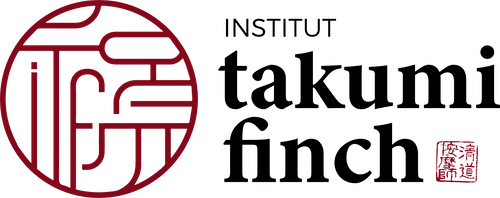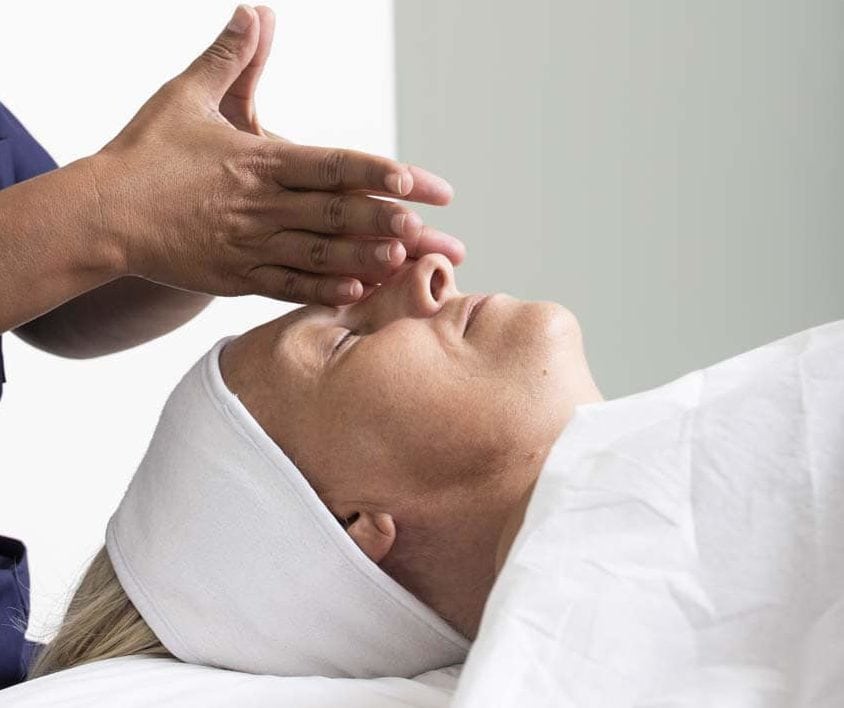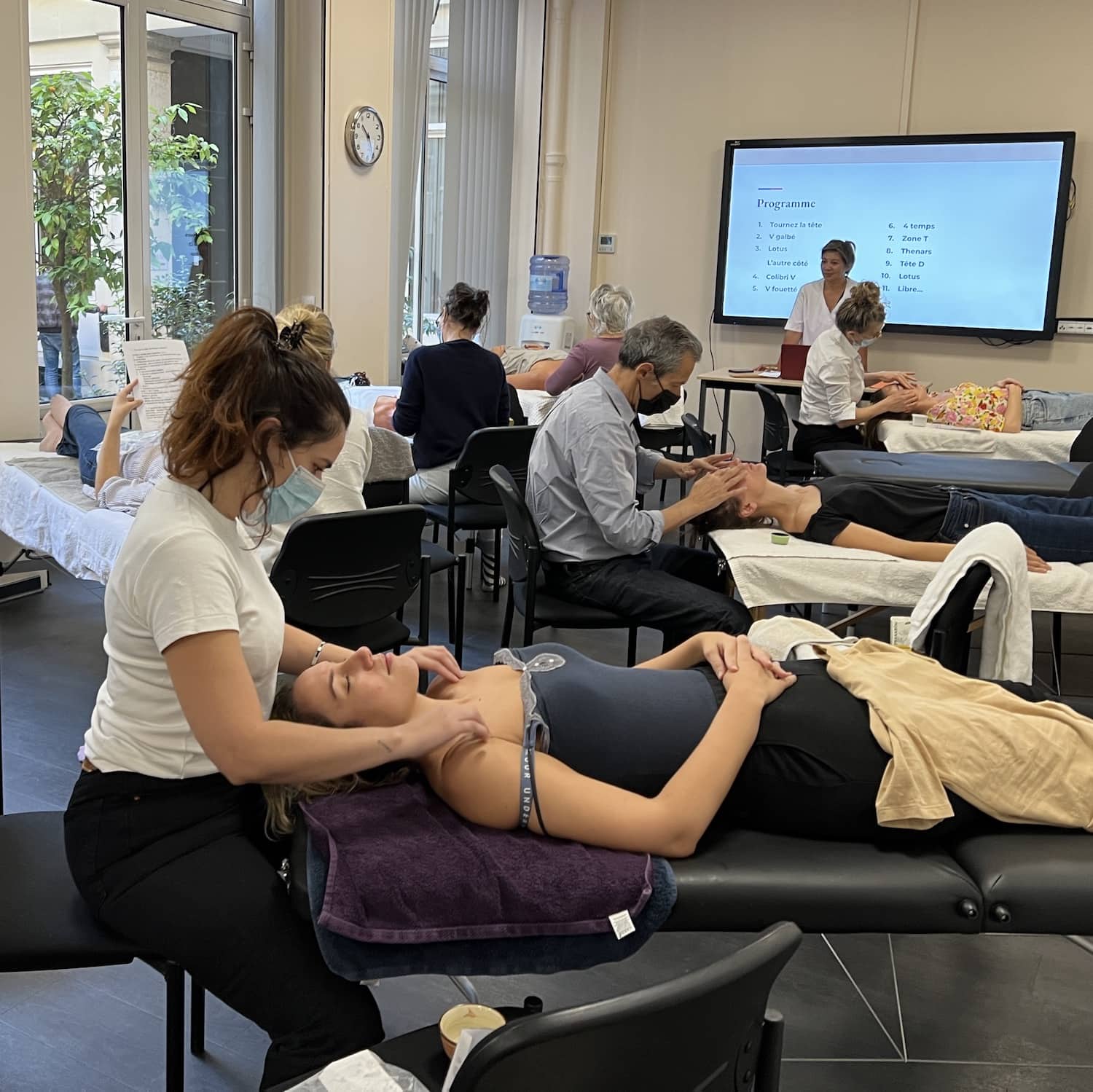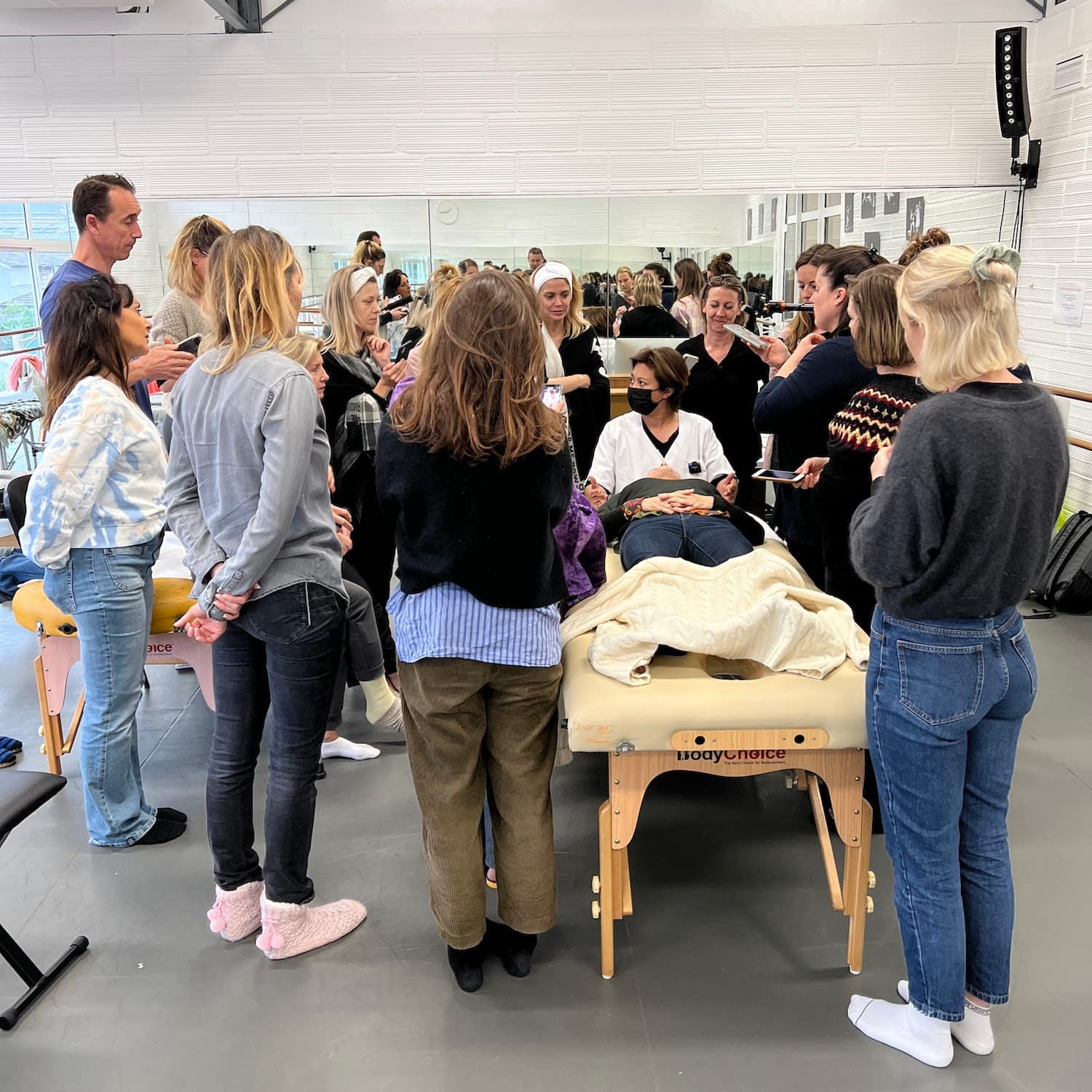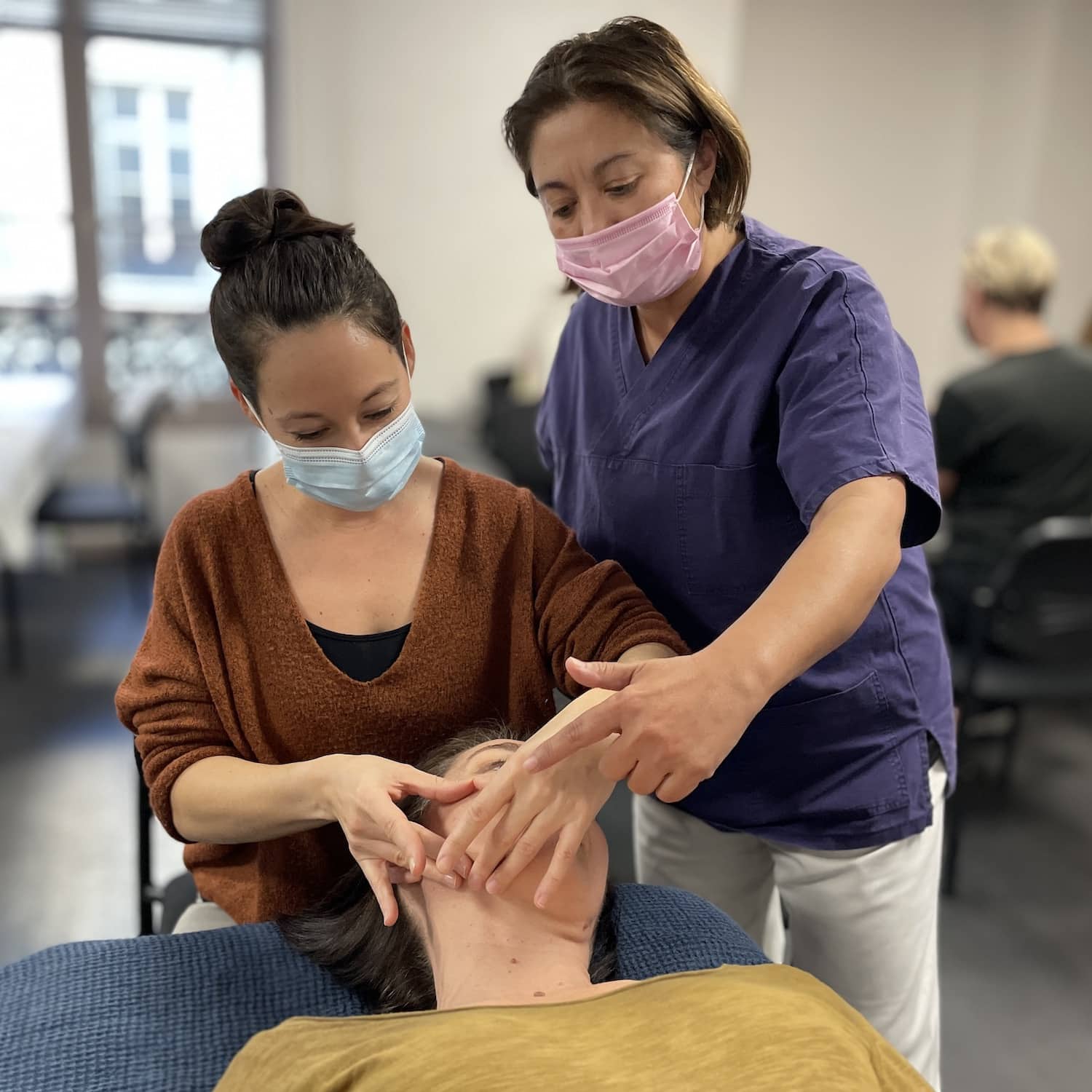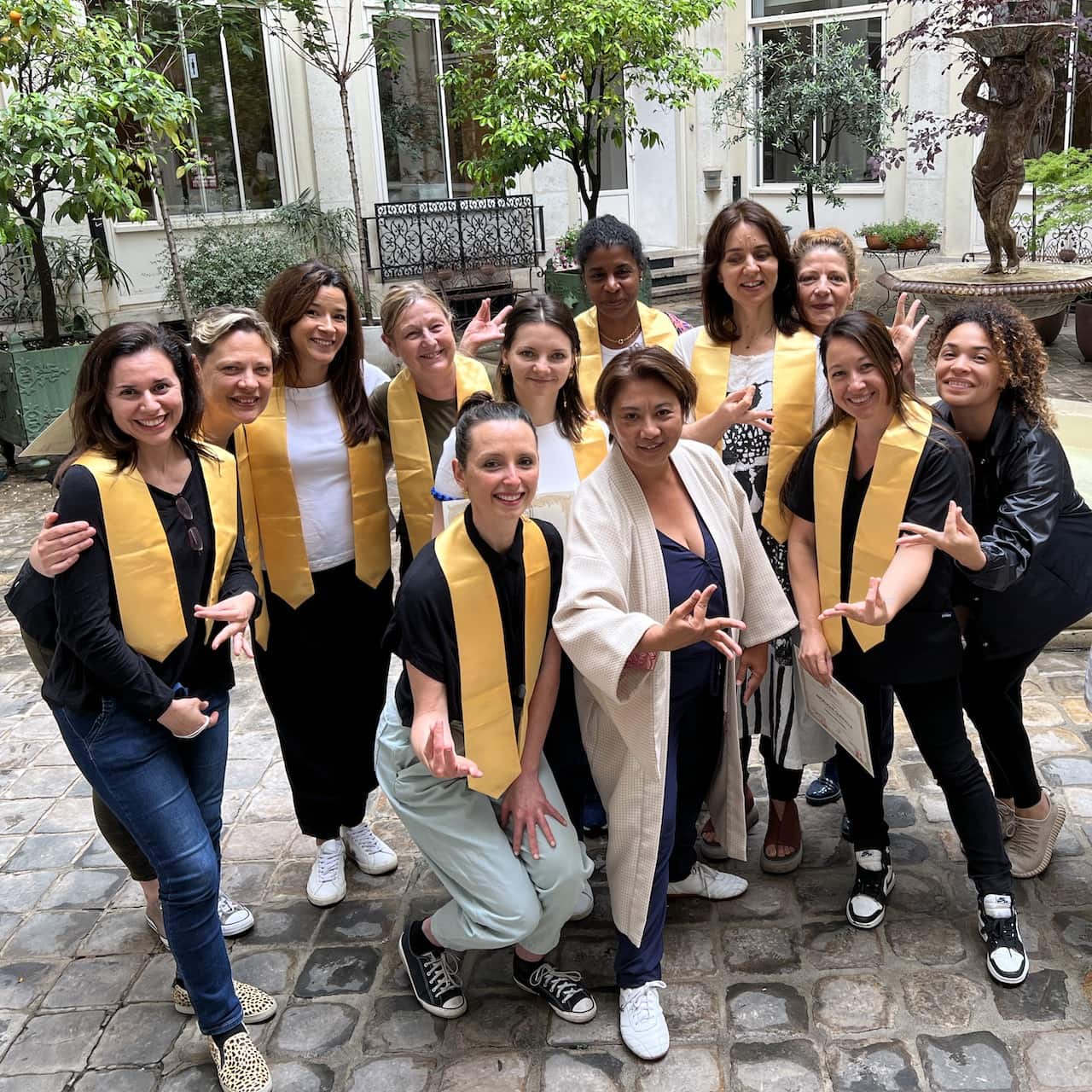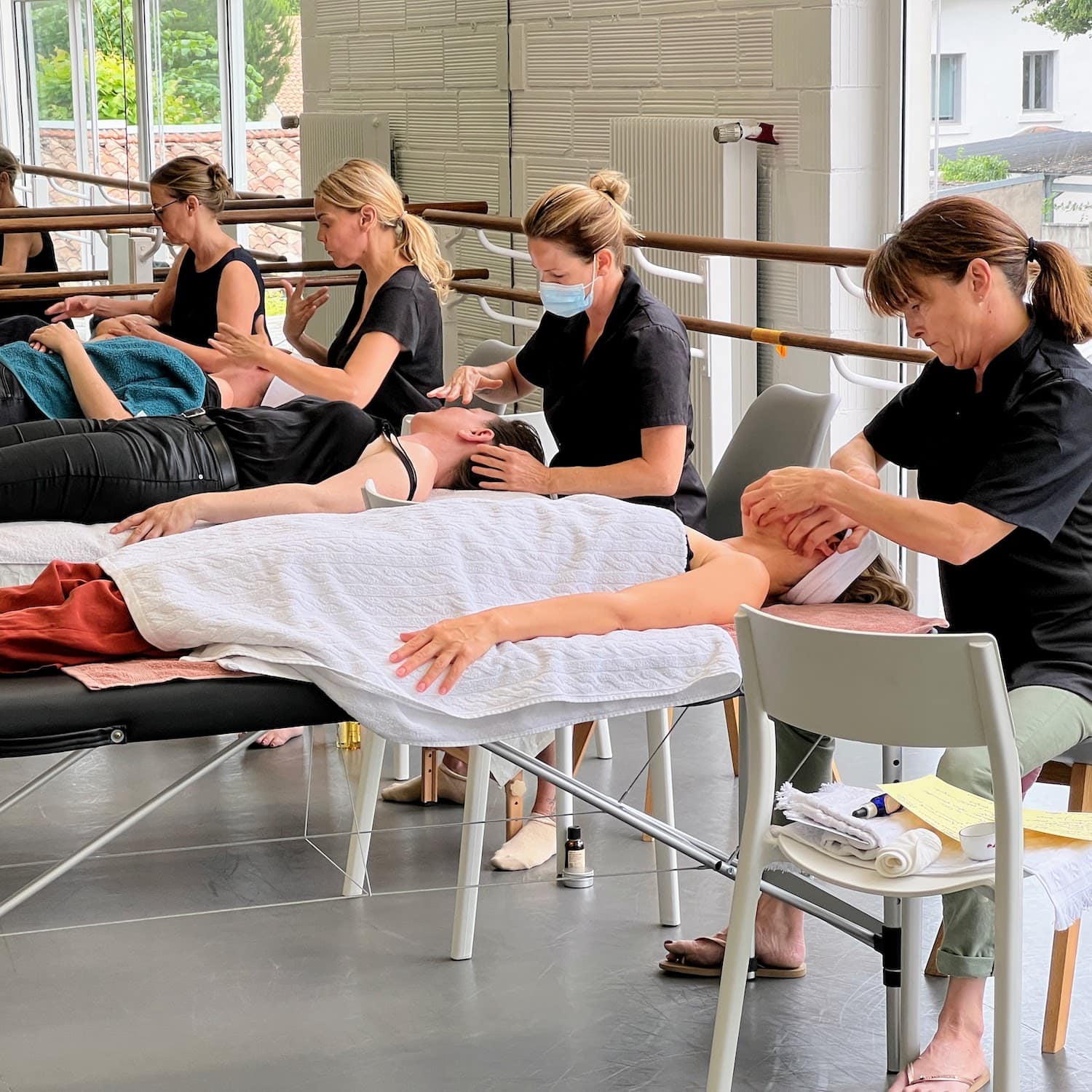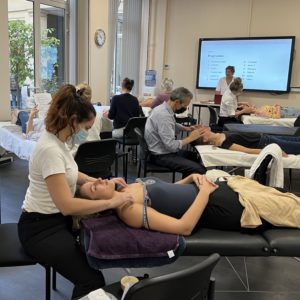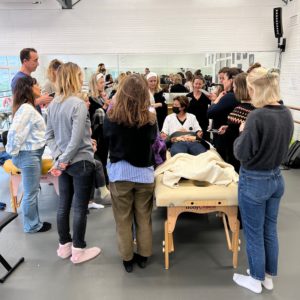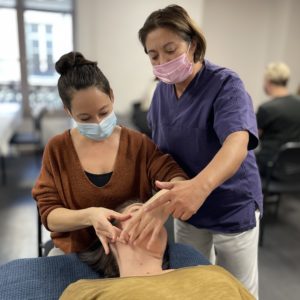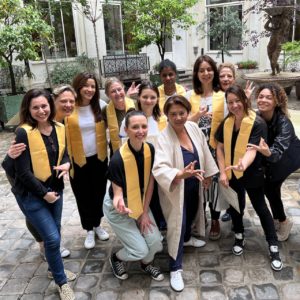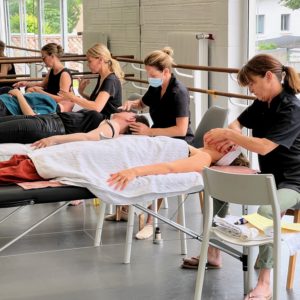Training in Ancestral Japanese Lifting
The Ancestral Japanese Facelift course atInstitut Takumi Finch is divided into 2 levels:
- Level 1: Ancestral Japanese Lifting Practitioner
- Level 2: Ancestral Japanese Lifting Specialist
Training Objectives:
- To train high-level wellness professionals or people undergoing retraining, and support them in their professional success.
- To pass on to them the foundations of Japanese Ancestral Lifting with an emphasis on ethics, deontology and professional practical skills, enabling them to intervene on all types of missions and support their clients and other health professionals in developing their potential for success and achieving their objectives.
For more information, please see the tabs below on this page!
Our Japanese Ancestral Lifting courses take place in :
Geneva Lausanne London Oslo Paris WarsawDetails of the training
-
Objectives
-
- To train high level fasciatherapists and to accompany them in their professional success.
- To transmit to them the foundations of the fasciatherapist profession with an emphasis on ethics, deontology and the professional practical skills of the fasciatherapist, allowing them to intervene on all types of missions and to support their clients and other health professionals so that they develop their potential for success and reach their objectives.
The first level of accreditation is training as a Japanese Ancestral Lifting PractitionerThe second level of accreditation is the Ancestral Japanese Lifting Specialist. In all, they make up 182 hours of training, divided into 11 protocols of massage techniques worked on at on-site and 30 complementary chapters done at home, in autonomy, filmed with the Institute's team of trainers (known as asynchronous mode).
-
-
Ancestral Japanese Facelift Practitioner
This level 1 includes 106 hours of training including 7 days of on-site with 8 hours of teaching per day, i.e. 56 hours in on-site, 50 hours in e-learning (asynchronous mode).
It is based on 6 manual practice protocols, supported by theoretical and explanatory content and, above all, supervision and monitoring by the teacher.
- Mastering Ancestral Japanese Facelift techniques
- The practitioner's posture
- Basic anatomy and physiology
- 6 intervention protocols
-
Ancestral Japanese Facelift Specialist
Level 2 includes 76 hours of training, including 5 days of on-site with 8 hours of teaching per day, i.e. 40 hours on on-site, 36 hours off-line (asynchronous mode) with supervision and follow-up by the teacher.
This level focuses on the application of protocols to the face. The specialist will be able to relax, drain and stimulate the face, with the aim of deep relaxation or facial sculpting.
- Create care interventions
- Develop a personalized and evolving follow-up
- Start the face lift process with the Takumi Finch method
- Manage your business activity
- Create personalized treatments with a vision of therapeutic well-being: lymphatic, rehabilitation and relaxation, stimulation protocols.
-
Accompaniment
Pedagogical team
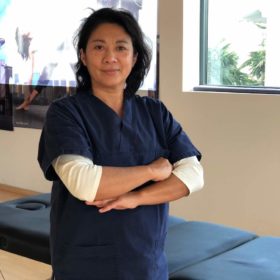
Sandrine Takumi Finch, Educational Director. Sandrine Takumi is a Fasciatherapist, lecturer and training consultant. She oversees the quality of Kobido training content.
All trainers are certified and have followed a rigorous train-the-trainer .
Pedagogical and technical means, teaching method
- Educational package: training booklet
- Private online training spaces with support documents and videos
- Course material: massage table, stool and other working tools
Follow-up on the implementation of the training outcome evaluation
- Alternating appropriation exercises, case studies, question-and-answer sessions
- Pair and individual work session for learning
- Remote work session for assimilation and appropriation of the long memory
- Grouping of acquired knowledge before and after the session
- Personal Reflection Journal to be completed
- Attendance checks: remote course timesheets, attendance sheets
- Continuous assessment: grades on tutorials, participation grades, instructor's comments
Accompaniment
- The opportunity to participate in all of our hands-on training visios.
- A private Facebook group reserved for our small group: Concrete case studies are discussed. A series of video meetings are proposed on complementary techniques or expert videos that allow us to expand our field of possibilities.
- Visios on our activity, bringing a solution to your problems. They are added as your requests or concerns arise, Your more advanced questions and diversified themes
-
Prerequisites
The institute selects its candidates during an in-depth telephone interview based on 4 main criteria:
- The vision of personal care
- An appetite for the science of touch
- Basic training
- Professional experience
- The candidate's personality, motivation, values and strengths
- The relevance and coherence of its project
-
Certification
Level 1: certification as a Japanese Ancestral Lifting Practitioner. This valid and important certification in the professionalization of a Therapeutic Wellness practitioner remains a private certification.
Level 2: the title of Ancestral Japanese Lifting Specialist will be awarded.
These two certifications, Practitioner and Specialist, are awarded to candidates who have completed the entire course and met all the certification requirements. Training lasts between 4 and 6 months, depending on the pace of your participation, with 182 hours of training at your disposal.
The validation jury composed of 3 people will verify your technique and your professional project by a continuous validation and an end of training validation. The continuous validation corresponds to 70% of your grade. It is composed of the validation of the protocols of intervention, and a note of participation. The validation at the end of the training corresponds to 30% of your grade. It is composed of a massage of 15 minutes and a training report of 10 pages minimum with 3 case studies.
-
Dates and places
Dates
For all dates, please consult the Training Calendar
-
Accessibility
We try as much as possible to put in place organizational, technical and human solutions and means to allow any person with a disability to fully benefit from our training courses.
If you have specific needs related to a disability, please contact us.
